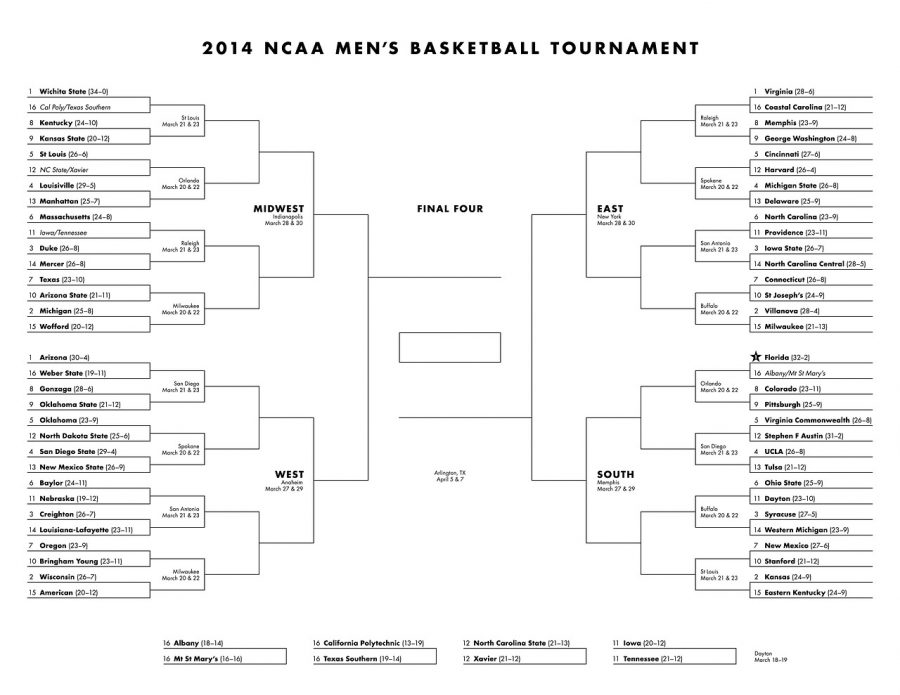Bracketology-The Almost Science
The rather large bracket amateurs and experts attempt to predict the outcome of 64 games
The NCAA Men’s Basketball Tournament will be in full swing on March 18. This 68 team two-week tournament determines who is the best in the nation of college basketball. It will bring up a recent field of study that actual mathematicians and sports fanatics alike participate in once a year. Bracketology is a word often thrown around and it requires a certain amount of skill to predict the winner of 63 games. It is a tricky science to predict and it does have a following of predicting the biggest basketball tournament of the year.
First, let’s clarify something, bracketology is not an actual science. There isn’t a college major for it and you cannot be dedicated to it as a career. To understand how the teams are placed there is a clear process. Once every team’s season has concluded, the teams are selected by a committee at the NCAA (National Collegiate Athletic Association). The first is placed into regional seeds labeled east, south, west, and midwest, and based on the team’s stats they are ranked 1-16. Then each region is placed into an overall bracket. They repeat the ranking process for all the teams playing. For fairness purposes, the best number 1 and number 2 seeded teams are not placed in the same region.
Now the so-called “bracketologists” dedicate a lot of time to discovering the perfect bracket. They can review game stats, injuries, seed placement, and much more. It can be possible theoretically to predict the perfect bracket, and that means every single game has to be right. The odds of a perfect bracket are 1 in 120 billion and that’s only if you know a lot about basketball; if you don’t those odds get significantly bigger.
To make the perfect bracket there is a load of tips and information to study. If you completely guessed on every single game it would take 9,223,372,036,854,775,808 brackets to eventually have a perfect one. There are factors to consider when selecting teams that will win every game. Points per game are an important one because the main way you win is by outscoring the other team. Other ratings like assists, regular-season records, injury tracking and evaluating every player’s weaknesses and strengths will help one prepare for every outcome.
Still this almost science has been intriguing every math wiz and sports superfan for as long as the tournament has been around. It is a complicated and troublesome thing to attempt to be perfect. In an unpredictable game landscape that’s constantly changing with every point scored, it still encapsulates fans for the two weeks they are glued to their television. This is not something that goes away because the drive for the perfect bracket will haunt those who attempt to find the divine miracle of that perfect bracket.







